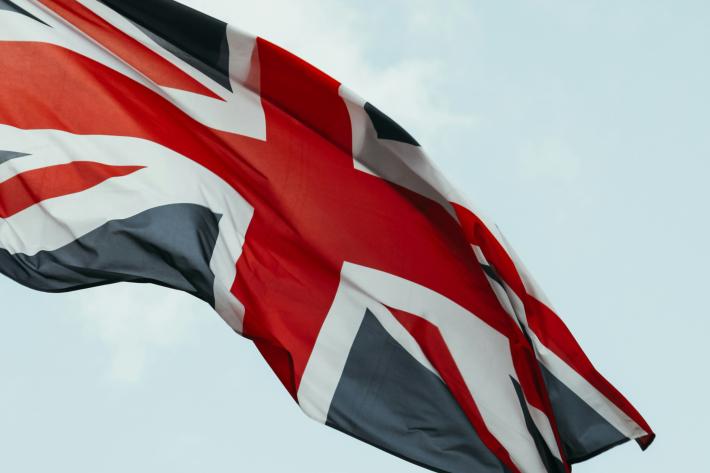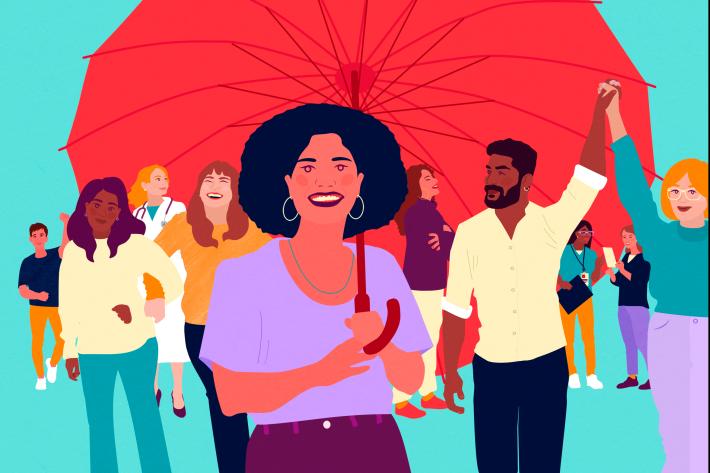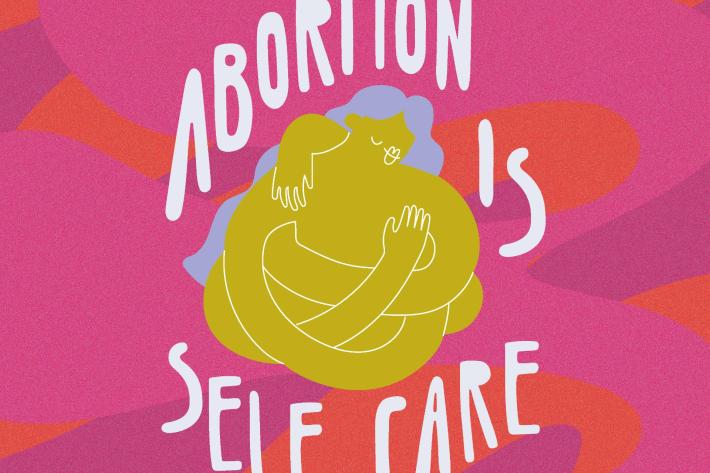
Spotlight
A selection of news from across the Federation

European Commission's new Women's Rights Roadmap includes SRHR—Now we need action
On 7 March, the EC released a new political declaration committing to uphold and advance women's rights. We welcome the inclusion of SRHR and other key topics. Now impactful actions are needed.
Filter our news by:


| 23 October 2019
Last chance to meet EU commitments under the current multi-annual budget
The European Parliament has today adopted its first reading on the EU 2020 budget. MEPs voted in favour of a €2,7 billion increase of the EU’s budget compared to the Commission’s proposal: an outright rejection of the Council’s proposed cuts. A budget increase that could save lives and improve health and wellbeing Dubbed as the last chance for the Union to meet key political commitments during this financial period, including the Sustainable Development Goals, the Parliament’s call for an ambitious budget for the last year of the current MFF is welcome news. With the support of the Committees on Women’s Rights and Gender Equality, and Development, the Parliament called for an increase of €10 million in commitment to the budget line on human development compared to the Commission’s proposal. This increase will finance projects on education, tackling diseases, gender equality and access to family planning and sexual and reproductive health and rights (SHRH), focusing directly on the needs and rights of people in developing countries. In addition, the budget line on ‘civil society in development’ would be restored and the one on humanitarian aid would increase by €50 million. Eef Wuyts, Director of European and International Affairs at IPPF EN, said: “The Human Development line is key to effectively ensuring people can access healthcare and education, and to guarantee women and girls’ access to quality sexual and reproductive health services.’’ But this additional investment falls short of commitments “While this proposed increase is a step in the right direction, it falls short of the EU’s commitment to dedicate at least 20% of its total Official Development Assistance to human development and social inclusion. We urge the Council not to cut this budget line any further’’, said Cécile Vernant, Head of the EU Office at DSW. “Europe has a responsibility to be a global leader on these issues, and this vote today is an important first step. The upcoming Nairobi Summit in November 2019 will be another important opportunity for the EU to make further concrete commitments – including financial ones – to accelerate progress to fully implement the International Conference on Population and Development’s Programme of Action’’, said Neil Datta, Secretary at EPF. Investing in human development, in areas such as health and SRHR is key to empowering women and achieving gender equality. It is crucial that Member States support the €10 million increase proposed by the European Parliament to ensure access to healthcare and education for all. END For more information, contact Ffion Storer Jones, Communications Officer at Deutsche Stiftung Weltbevölkerung (DSW)’s EU office on [email protected] or +32 2 504 90 62. Notes: DSW is a global development organisation that focuses on the needs and potential of the largest youth generation in history. We are committed to creating demand for and access to health information, services, supplies, and economic empowerment for youth. We achieve this by engaging in advocacy, capacity development, and reproductive health initiatives so that young people are empowered to lead healthy and self-determined lives. DSW also advocates for investment in research and innovation to fight poverty-related and neglected tropical diseases. For more information, visit www.dsw.org/en The International Planned Parenthood Federation European Network (IPPF EN) champions sexual and reproductive health and rights for all. IPPF EN and our partners work in over 40 countries across Europe and Central Asia to empower everyone, especially the most socially excluded, to live with dignity and to have access to sexual and reproductive health and rights. This access is essential to achieving the UN Sustainable Development Goals in all countries. For more information, visit https://www.ippfen.org/ The European Parliamentary Forum for Sexual and Reproductive Rights (EPF) is Europe’s only parliamentary network focusing on sexual and reproductive health and rights. EPF serves as a platform for cooperation and coordination for its 33 all-party groups in Parliaments throughout Europe to promote and defend the sexual and reproductive health and rights of all individuals, to defend and advance gender equality and equity, women’s empowerment, and to eliminate all forms of discrimination, coercion and violence against women and girls worldwide. For more information, visit https://www.epfweb.org/ The European Consensus on Development is a shared vision and framework for action for development cooperation for the European Union (EU) and its Member States. It is a blueprint which aligns the Union’s development policy with the 2030 Agenda for Sustainable Development. For more information, go here.

| 16 October 2019
Morally bankrupt Polish bill undermines children’s safety and women’s protection from violence
Today the Polish Parliament deliberates a bill that will endanger young people in Poland, threatening their emotional, physical and social wellbeing by censoring information on sexual and reproductive health and prevention of sexual violence. It is no surprise that the author of this morally bankrupt initiative is the fundamentalist organisation Ordo Iuris, as it will particularly hurt and harm young women and girls, consistently their target of attack. The promoters of this medieval bill want to censor and punish those who care for children’s health and women’s safety. They would see 3-year prison sentences imposed on anyone who works to protect young people through educating them about healthy relationships, intimate life and prevention of violence. This is an utterly irresponsible proposal in a digital era where it is not possible to control what information young people see and how they interpret it. Children as young as nine are getting their first information on intimate relations from internet pornography. Violence against women and girls is endemic all over the world; in Poland 4.5 million women experience psychological violence at the hands of their current partners or husbands; and 2 million women experience physical or sexual violence. Parents everywhere want to protect their children as they grow into adulthood and ensure they have happy and healthy lives. In this they urgently need to be supported by the wider community, including schools. Various studies demonstrate that education addressing equality between men and women and focusing on consent can reduce intimate partner violence. Yet, just when such support is most needed, this bill seeks to rip the rug from under the feet of Polish parents and enable the state to abdicate its responsibility to protect the health and safety of its citizens, particularly women and young people. The intention of the bill closely mirrors a Russian law from 2012 that has forbidden all information on sexuality education, making it impossible for teachers to help reduce teenage pregnancies and rates of HIV. This would be a tragic example for Poland to follow. Irene Donadio, Senior Lead for Partnerships and Strategy at IPPF European Network, said: “The ideologically driven progenitors of this punitive bill clearly don’t care at all about the real challenges that parents, children and society face. The times we live in are full of new dangers, and governments should be protecting and supporting young people to develop the skills needed for healthy intimacy throughout their lives, helping to stop an epidemic of violence directed at women. It sends a shiver down my spine that there are people trying instead to drive girls and boys back into a world of ignorance and fear. It is also revealing that an initiative ostensibly intended to prevent paedophilia does not propose any measure that would tackle violence such as that perpetrated by the Catholic Church in Poland’s biggest child sexual abuse scandal. IPPF EN urges the Polish Parliament to stand up for children’s health and wellbeing instead of ripping away essential protections." *** For more information, contact [email protected], +32 (0)491 719 390

| 27 March 2019
European Parliament pushes for next EU budget to strongly support free and safe reproductive lives
Today in Strasbourg, a sizable majority of MEPs voted to support sexual and reproductive health and rights (SRHR), gender equality, and the empowerment of women as key aspects of the EU’s next seven-year budget plan for external relations. MEPs voted by 420 to 145 votes to sign-off on the European Parliament’s position on the Neighbourhood, Development and International Cooperation Instrument (NDICI). Speaking after the vote in Strasbourg, Cecile Vernant, head of EU Office at Deutsche Stiftung Weltbevoelkerung (DSW), said: “We’re delighted that MEPs approved the hard-won negotiation on the NDICI file, and that they resisted call to remove important and supportive language on issues to do with sexual and reproductive health and rights. It shows that the EU is living up to its international commitments to women and girls around the world.” The final report, drafted by MEPs Pier Antonio Panzeri, Cristian Dan Preda, Frank Engel, Charles Goerens, was adopted in plenary session by the European Parliament. The NDICI will cover EU spending on external, neighbourhood, and development policy between 2021 and 2028. Caroline Hickson, Regional Director for IPPF EN, welcomed the outcome: “Sexual and reproductive health care saves lives. Without it there can be no equal protection for women and men. It is fantastic that the European Parliament has voted to uphold the right of young men and women around the world to lead safe and dignified lives, free from coercion and harm.” Neil Datta, of the European Parliamentary Forum for Sexual & Reproductive Rights added: “Europe has a responsibility to take up a global leadership role on this issue, and this vote today is an important first step. This vote shows how important it is that we continue to work vocally in support of these issues, particularly as the European elections in May 2019 may usher in a political climate that is even more hostile to sexual and reproductive health and rights and issues of gender equality. However, we hope that following the European elections in May 2019, and the installation of a new European Commission at the end of the year, that the commitments made in Strasbourg today are not diluted.”

| 05 March 2019
EU development budget: MEPs strongly support free and safe reproductive lives
Today in Brussels, the European Parliament expressed its strong support for sexual and reproductive health and rights, gender equality, and the empowerment of women, youth and children. In a binding Committee vote this evening on the EU’s future Neighbourhood, Development and International Cooperation Instrument, Members of the European Parliament’s committees on Foreign Affairs and on Development passed a series of amendments to the proposed regulation. These commit the European Union to promote sexual and reproductive health and rights as part of a human rights-based approach to development assistance. In addition, MEPs supported amendments that called for EU support for access to comprehensive sexual and reproductive health information and sexuality education, and the promotion of research into new and improved tools for sexual and reproductive healthcare and family planning. Speaking after the vote, a coalition of civil society groups called on EU member states to take heed of the outcome when they come to negotiate with the European Parliament to finalise the “Neighbourhood, Development and International Cooperation Instrument” (NDICI) in the coming months. The statement was signed by: · Cecile Vernant, Head of EU Advocacy, Deutsche Stiftung Weltbevoelkerung (DSW) · Caroline Hickson, Regional Director, International Planned Parenthood Federation Europe Network (IPPF EN) · Neil Datta, Secretary, European Parliamentary Forum on Population and Development They said: “Europe’s elected parliamentarians have given a strong signal tonight that they are determined to make the EU live up to its international obligations on sexual and reproductive health and rights. It would be an abrogation of responsibility if EU ministers seek to dilute this position in the coming negotiations on the future of EU development policy. "We urge them to take up global leadership on this issue, align with the European Parliament, and place themselves on the right side of history – young men and women around the world who want to live free and safe reproductive lives are counting on them.”

| 01 October 2018
The European Week of Action of Girls is back!
The European Week of Action of Girls (EWAG) is a week-long programme of events and activities, based around the International Day of the Girl Child, on Thursday 11th October. Now in its sixth year EWAG asks the EU to better protect and champion the rights of girls, particularly through its external action. Organised by a coalition of civil society organisations, and supported by the European Institutions and UN Agencies, the 2018 European Week of Action for Girls takes place from 8 – 12 October. The European Week of Action for Girls 2018 will give girls the opportunity to talk to EU decision-makers and help shape a better world for all girls. They will address EU leaders on what needs to be done to overcome the barriers they face and to ensure their rights are respected, protected and fulfilled. This year, EWAG will particularly focus on girls’ right to education, combatting violence, economic empowerment and to participation in decision-making. Background paper. Advocacy paper. Video interview following EWAG. The week in photos.

| 11 July 2018
Together against the backlash on reproductive rights
IPPF EN is proud to be among more than 100 signatories (mostly Members of the European Parliament) of the All of Us manifesto urging the EU and Member States to ensure reproductive freedom. All of US is the European Parliament's pro-choice network, mobilizing support for the right to access modern contraception and safe and legal abortion. The manifesto reads as follows: "The cross-party ALL of US coalition in the European Parliament commits to and urges the EU and Member States to ensure women’s reproductive health and rights, including the right to decide over their own bodies and sexuality, so that women can live freely and enjoy safe reproductive lives. To that end, we call on the EU and Member States to: Firmly denounce and oppose regressive and repressive discourse, laws and policies that undermine gender equality and women’s sexual and reproductive health and rights, and strongly condemn retrograde measures that have no place in a democratic 21st century Europe; Invest resources in and prioritize the delivery of far-reaching initiatives to change harmful social norms, to defend women’s dignity and autonomy and to combat all gender-based violence; Provide strong political and financial support to women’s rights groups and human rights defenders, particularly those working in challenging contexts within the EU and across the globe; Proactively support women's rights worldwide and significantly increase EU development funding for sexual and reproductive health and rights in particular for access to family planning and safe and legal abortion without discrimination, with a view to reducing the financing gap left by the United States in this area. We urge the EU Member States to ensure women’s access to safe abortion care, to provide the best possible reproductive health care to all women and to protect all its citizens from coercion and illtreatment. The ALL of US coalition will continue its work in the European Parliament and beyond to mobilise support for women’s sexual and reproductive health and rights within and outside the EU and will not be hampered by regressive propaganda."
Pagination
- First page
- Previous page
- …
- 12
- 13
- 14
- …
- Next page
- Last page
















